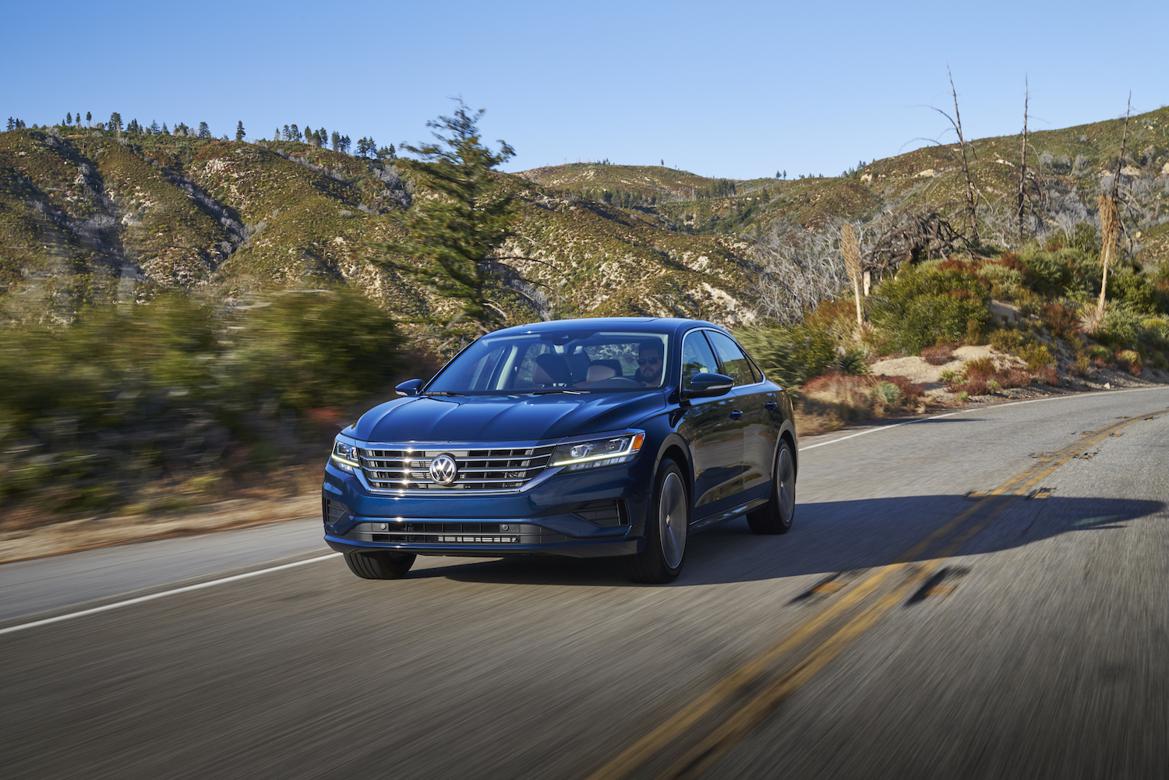Volkswagen says that the exterior for the new Passat has been completely redesigned, giving the it a "much bolder look." Volkswagen also tells us that the only piece of sheet metal said to come from the previous generation is the roof panel.
What does that mean for most consumers? Probably not much, besides something you can blurt out in the middle of an awkward conversation.
Underneath the hood of all 2020 Passats lies a 2.0-liter, turbocharged inline-four shared with a few other models in Volkswagen's lineup. That engine is capable of 174 horsepower and 206 lb.-ft. of torque.
The Passat can be had in four different trims, ranging from the base S to the top SEL. The SE looks to be the mid-range option, with the R-Line trim being the one to go for if you want a Passat with a little more attitude.
For our driving impressions, read the entire review below.



Like what you're reading? We rely on your financial support. For as little as $3, you can support Grassroots Motorsports by becoming a Patron today.
Become a Patron!
Other staff views
JG Pasterjak
Tech Editor & Production Manager
We’ve been getting a lot of VWs in the press fleet lately, and we’re certainly not complaining. Volkswagen’s current lineup—particularly the models based on their versatile and modular MQB platform—is full of driver-centric machines with tons of features, utility and value.
But that last factor—value—is an interesting proposition in this equation, and nowhere are the complexities of this equation more evident than with the Passat. The Passat is a great mid-sized sedan, with all the driver engagement we’ve come to love from the MQB-based Volkswagens. The problem is, there are other great MQB-based Volkswagens that match the Passat’s feature and power level, for well under the $32,000 sticker price of our loaded Passat. And if you’re determined to spend all $32,000, you can get a practically loaded GTI with more power and performance, and just as much if not more luxury.
Yes, I get that GTI buyers and Passat buyers aren’t always the same people, but the differences in these corporate siblings are more marketing than engineering.
So why buy the Passat at all? Well, it does have a few things going for it that could push someone out of a Golf and into one. The first is the rear-seat size. While the front seating area is very MQB-typical (which is to say excellent, although if you got in blindfolded you probably wouldn’t be able to tell which Volkswagen you were sitting in), the rear seating area is considerably larger than the Golf or even the Jetta. Rear passengers are treated as fully engaged participants in the interior with lots of personal space, great views and easy ingress and egress.
Next is the trunk, which is almost obscenely spacious. The Passat boasts 15.7 cubic feet of trunk space, which falls barely half a cubic foot short of the Golf’s cavernous hatchback cargo area.
But, that’s kind of it. It’s bigger. If that’s what you need, the Passat fills the bill nicely, even if it only does it with the 174 horsepower variant of the 2.0-liter, direct-injected turbocharged engine. It’s got all the great manners and driver engagement of the other MQB-platform cars, with a little more space for passengers, and little sacrifice in cargo room despite going from a hatchback to a handsome sedan.
From an absolute value proposition, though, Volkswagen is their own worst enemy to the Passat, as there’s just more exciting and similarly-priced machinery sitting on the dealer lots right next to it.
Comments
View all comments on the GRM forums
You'll need to log in to post.






























